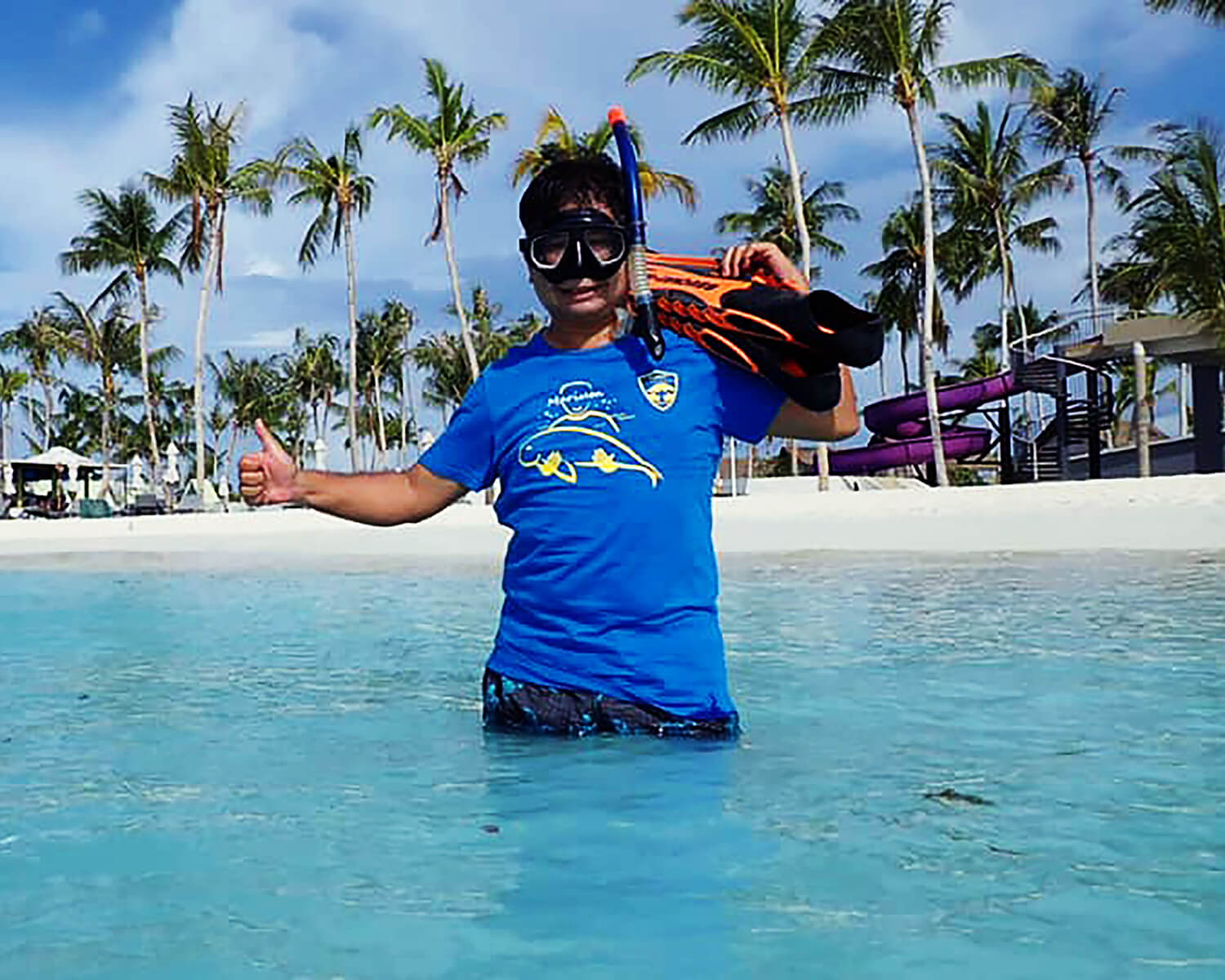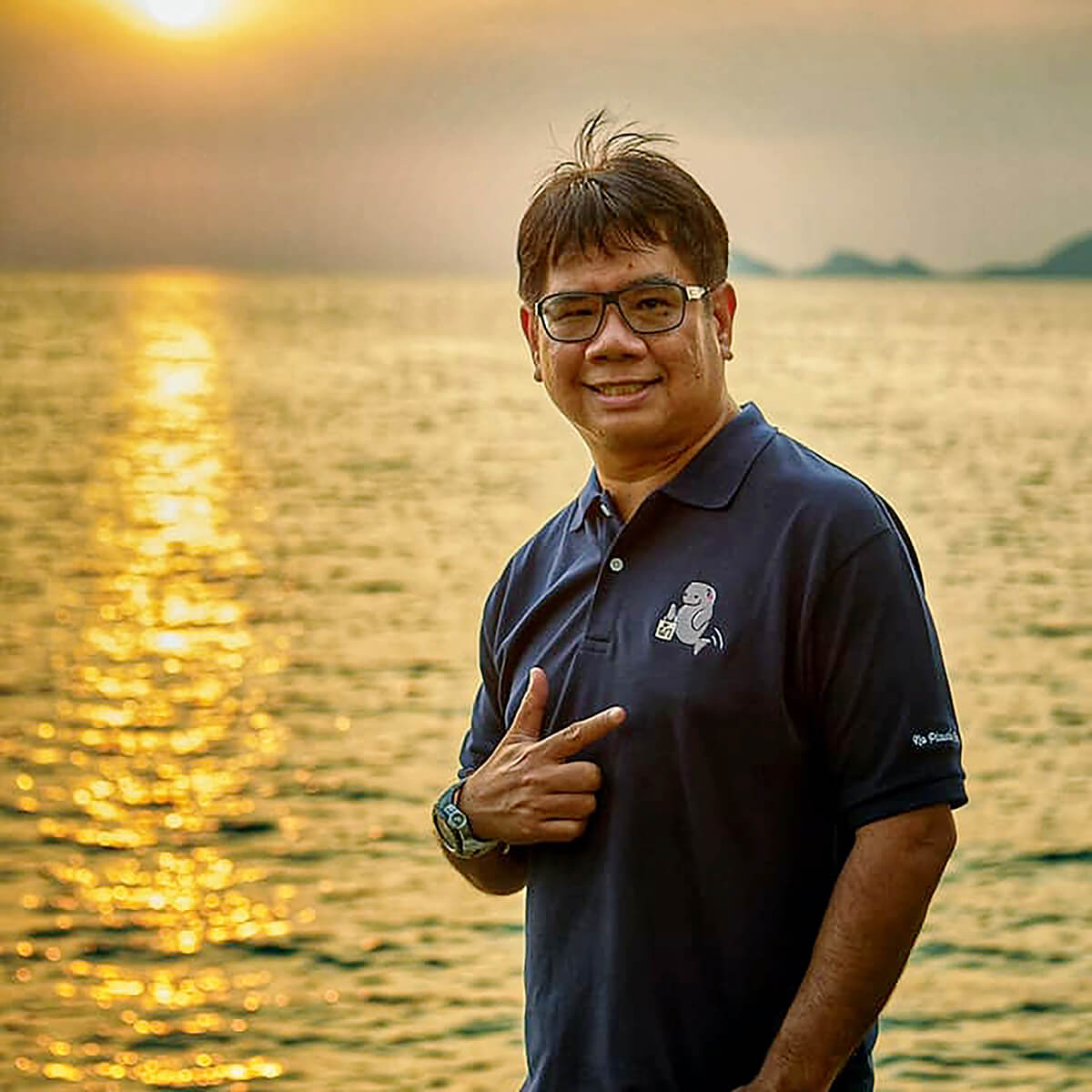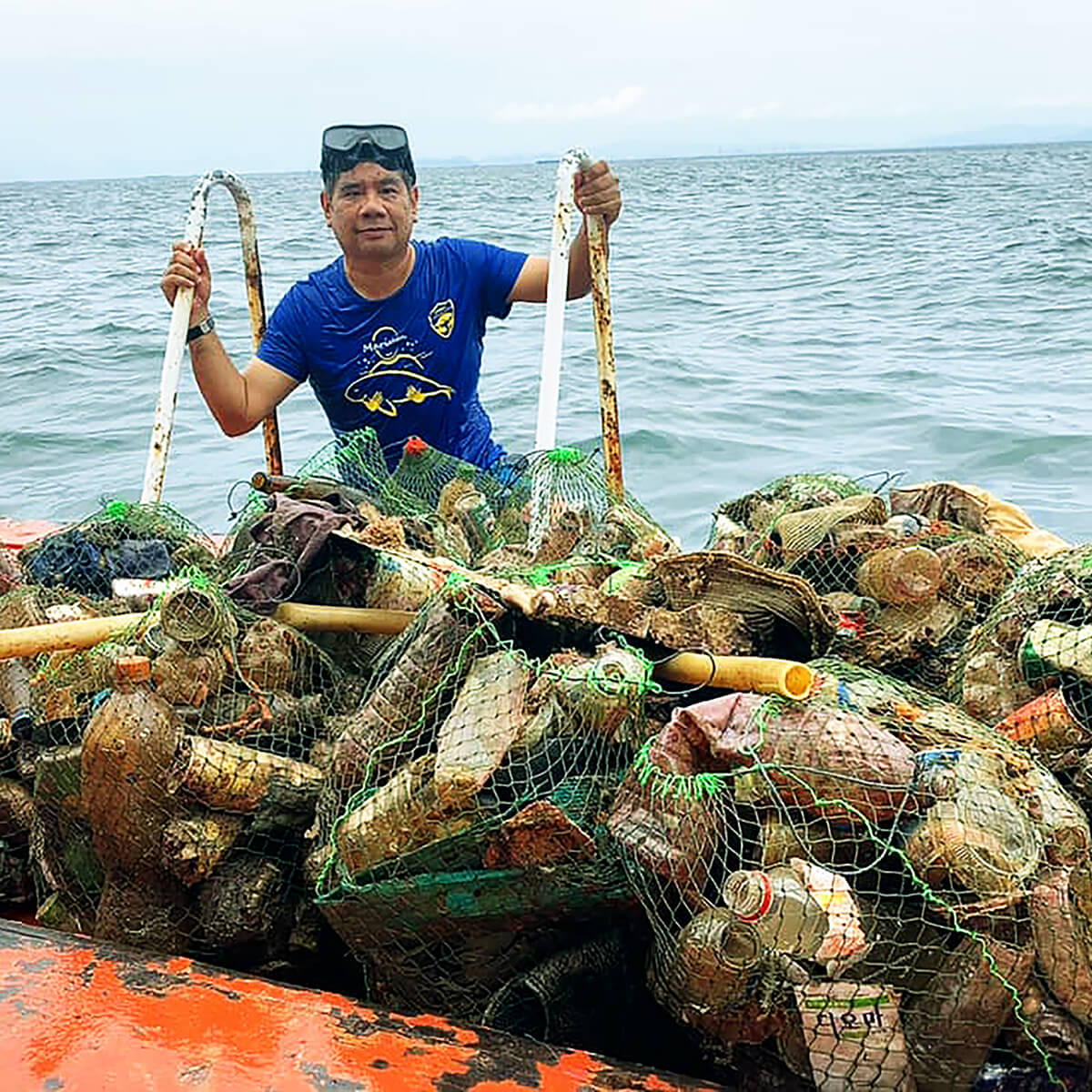



They say love makes the world go round, and this seems to be the case for Thon Thamrongnawasawat, a man who fell in love with the sea when he was young and has remained committed to it ever since.
STORY
SURANGRAT KANBUBPHA
“I have always loved being outdoors and in nature. When I went to national parks, I loved both the forest and the sea. In Grade 9, I had an idea to focus on marine environment because not many people were in that field at the time. In Grade 10, I decided to study marine science, and I thought that as long as there are fishermen and sea travellers, marine science will always be important.”
Deputy Dean of the Faculty of Fishery at Kasetsart University in Bangkok, Asst. Prof. Dr. Thon Thamrongnawasawat is a marine and environment activist who plays an important role in marine conservation in Thailand. He talked about the start of his passion for the sea, which has paved the way for him to be part of the National Reform Committee, National Strategy Committee, National Sea Committee, and National Tourism Policy Committee, as well as an avid fan of Thai seas. He is behind many significant projects, such as the closure of world-famous Maya Bay, Phi Phi Islands, Krabi province, the reform of Marine National Parks using the Phi Phi Model, conservation of many seas and coral reefs, and the big change in the Thai society in early 2020 — stopping the use of single-use plastic bags, something no one would have thought possible in Thailand.



If we can progress according to our roadmap, in the next 10 years, we will have stopped the use of single-use plastic cups, bags, and straws. We will reach the same level as Europe in the next 3-5 years
For decades, he has been involved in many aspects of Thai seas, and he has seen significant changes in the issues. In the past, most of the negative actions were from those who wanted to take advantage of the seas, but now they are from people’s irresponsibility.
“I’ve been involved for a long time and I’ve seen a lot of changes. Forty years ago, not many people talked about global warming. Most of the issues about the sea came from people taking advantage of them, such as a practice called “fish bombing” and collecting corals. With law enforcement, these issues have improved. But now the issues have shifted from taking advantage of the sea to little actions that impact the sea, wherever we are in the world. For example, someone in Mae Hong Son could throw away trash and it could end up in the sea. Polluted water is leaked into the sea. When we talk about global warming, everyone in the world plays their part, and this has caused the sea level to rise, coasts to erode, and corals to be bleached. The issues today do not come from people intentionally damaging the sea — it comes from their irresponsibility and ignorance about the environment. This is a severe and difficult problem. If someone steals corals, we can catch the person, but how can we catch the person who litters into the sea when all of us produce trash? Therefore, this is an issue that needs more than law enforcement.”
So that’s the problem with the sea and today’s world. As a marine activist, Thon is not only a scientist, but also an academic, a strategist, and a consultant who works tirelessly to save the sea and the environment, especially when it comes to marine trash. After having actively encouraged everyone to stop the use of single-use plastic bags, the policy is now finally in place, and the amount of plastic waste has reduced. According to him, in just a month and a half, from January to mid-February, Thailand has reduced far more plastic waste than ever, which in turn helps reduce the amount of marine waste.
“Data shows that the amount of marine waste used to be 50,000 tonnes per year, and now it’s 30,000. No matter how hard we try to collect marine waste, we can at most collect 2,000 tonnes. The best way to reduce the marine waste is to stop it from the source, and I know it’s something that can be done, something we can do better. So, we have a plastic roadmap, and now we will focus on single-use plastic cups, plastic straws, plastic bags in fresh markets, and plastic bottles. These things are found in the sea. We are now on the right track, and if we can progress according to our roadmap, in the next 10 years, we will have stopped the use of single-use plastic cups, bags, and straws. We will reach the same level as Europe in the next 3-5 years,” he said, referring to part of the 20-year National Strategy which will help reduce the severity of environmental issues, particularly plastic waste.



Although plastic is a national agenda, Thon said that plastic is not the bad guy if we know how to use it properly. “In Europe, they use more plastic than in Thailand, but they do not treat it as a single-use item. There are 36,000 types of plastic, so what we have to do is reduce the amount of plastic that ends up as trash, which eventually is leaked into the sea. You don’t have to switch from plastic bag to tote bag — you just have to reuse it. That’s the change that needs to happen.” This has always been the message he’s been trying to convey through his Facebook page which has more than 100,000 followers.
According to him, Thailand’s seas are not in big trouble, and everything is progressing according to the roadmap, which focuses on the OHI or Ocean Health Index, which measures the health of the ocean in 10 areas. In each area, there is a dedicated committee, such as rare marine animals, which is an area that Thailand does well and is a leader in ASEAN as well as in Asia. For marine waste, we’ve made a big progress at a faster pace than before. However, he is worried about polluted water, which is hard to undo.



“Waste water comes from every home and every one of us, but the amount of waste water that gets treated is only 20%. A plan to reduce this is in place, but there’s not enough budget, because one water treatment plant requires 5-6 billion baht. It won’t be right to spend tax money from Mae Hong Son to build a water treatment plant in Phuket, even if Phuket generates a lot of income for the country. This is a local issue, so we have to work with the private sector and create a sustainable plan. This is work in progress.”
For him, all the issues stem from people’s lack of awareness and social and environmental responsibility. He hopes that Thai people will grow increasingly aware of the issues and work together to promote sustainability, or the impact could come back to hurt us.
The final question was whether he is tired from doing all this. He gave us his signature smile and said, “Of course, I am tired. Everyone is tired. About what I do, I don’t care about the journey, but I care about the destination. When I’ve reached my destination, I will ask myself if I’ll still continue such a painful journey (laughs). Actually, it’s quite fun to work for the environment. I want things around me to improve. When I see that the amount of trash is reduced, and turtles are saved and don’t eat plastic bags, I feel happy. This is a global trend and the trend is here to stay. If you want to be trendy, join us on the quest to save the environment.”




 Shopping Online
Shopping Online